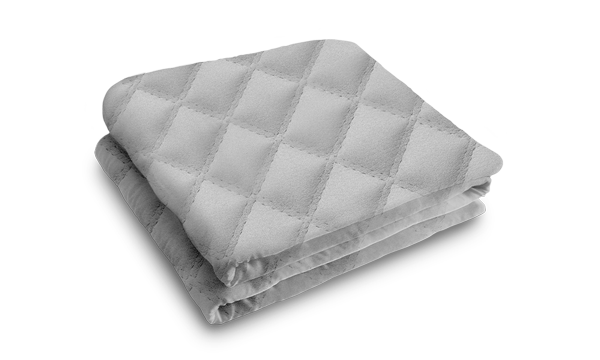How To Manage Sleep And Mental Health For Your Wellbeing
The relationship between sleep and mental health has been closely studied and discussed by sleep experts around the world.
In one study conducted by the researchers in Michigan, it was found insomniacs are four times more likely to develop major depression later in their lives than those who get a good night’s sleep consistently.
Trouble sleeping has also been shown to appear in more than 50% of adults who struggle with generalized anxiety disorders, have phobias, PTSD, and OCD.
When the statistics look this bad, it begins to put in perspective how important a good night’s sleep really can be, as well as the difference it can make in your own well-being. As it turns out, investing in your sleep, whether that be through the most comfortable mattress for you, or simply by finding a night routine that works for you, is just as important for your health as eating well or exercising.
How Sleep And Mental Health Are Connected

A good night's sleep consists of 'quiet', or NREM sleep, and REM sleep. During 'quiet' sleep, our bodies progress through four different stages of progressively deeper sleep. Physiological changes like a drop in body temperature, relaxed muscles, and a slower heart rate are all a part of this phase of sleep. These help regulate and maintain our immune system functioning, making us healthier, and in turn, happier.
If you dream a lot through the night, that's your REM stage at work. Though much is being studied about the REM stage of sleep, many researchers acknowledge its importance in memory consolidation, learning, and even emotional health.
Both these phases of sleep come together to help our bodies recover and heal properly through the night. Disrupting this cycle causes confusion in your brain, and interrupts important physiological and therefore psychological processes from taking place. If you've ever woken up with the feeling you've got out the 'wrong side of the bed', then you know this is true from experience, but the science backs this up too.
Check out Puffy mattress reviews from real customers and see how we compare with other brands.
3 Signs Stress Might Be Impacting Your Sleep
So how do you know if your poor sleep patterns are a result of deeper mental health problems, temporary stress, or something else that you might need further help with?
Here are some signs chronic stress might be impacting the way you sleep:
- Your muscles remain tense as you try and get sleep at night. If you clench your jaw, or can’t seem to get comfy through the night, chances are you might be tossing and turning due to stress. This is part of the reason it's important to invest in the best mattress you can for your comfort.
- You're unable to switch off racing thoughts right when it's bedtime. While it might be easier to busy yourself with your day-to-day errands and tasks, as you settle into bed, it's natural for the mind to drift to places you're trying not to think about. If you're struggling with obsessive thoughts to the point where it's interrupting your sleep, it's safe to say your stress is getting difficult to manage.
- You're beginning to get anxious about your sleep anxiety. If you’ve already lost a couple of nights over stress, it is also natural to begin to develop nervousness about getting a good night's sleep.
The great news is that poor sleep is far from an incurable condition, and with enough practice, you can manage both the amount of rest you get each night, as well as your relationship with your mental health.
How To Get A Calm Night's Sleep

It's important to practice self-compassion and look after your sleep and mental health properly. Making sure you have a cozy sleep set up, getting a nightly routine that focuses on comfort, and staying on top of your diet and exercise can all help contribute to a good night's sleep.
Maintaining sleep hygiene requires a little bit of self-discipline, but it can help minimize the symptoms of chronic stress. Try and stay away from blue light at least a few hours before going to bed: not only does this disrupt your body's natural sleep cycle, the notifications on your phone can sometimes cause more stress than they’re actually worth.
Another way to ensure calmer sleep is by trying out mindfulness, meditation, or nightly yoga practice. All these habits have been shown to have deeply positive impacts on sleep anxiety and can be a great way to take stock, pause, and slow down right before going to bed. Some of our favorite apps for sleep meditation include Headspace, Calm, and Slumber.
Since sleep and mental health are so closely connected, another healthy sleep hygiene habit includes making sure your bedroom is as comfortable as possible. This can mean different things to different people, but if you're already happy with the way your bedroom looks, consider getting a sleep accessory to help you fall (and stay!) asleep quicker.
Weighted blankets, for instance, have been shown to be incredibly effective in trial runs with people who struggle with sleep anxiety. By using technology known as deep pressure stimulation to mimic the same warm feeling you get when you receive a hug, these blankets are a great short cut for those who find themselves tossing and turning for hours before finally falling asleep.
Staying Optimistic Through Chronic Stress
This year, both sleep and mental health have taken a serious hit globally. According to answers from the Puffy Sleep Survey, 61% of Americans have seen the negative impact of poor sleep in the COVID-19 pandemic which impacted their mood. Knowing you're not alone in feeling anxious or nervous, and trying to maintain a healthy lifestyle, and treating yourself kindly can all do wonders for both the way you're feeling, as well as the way you’re sleeping.
Remember that you should really only be using your bedroom for sleep - try and keep office calls, workouts, and any other tasks somewhere else in your home, and definitely far away from your bed. The more you associate your bed with a place of safety, comfort, and rest, the quicker you're going to find a good night's sleep (as well as peace of mind!) right around the corner.
Disclaimer. We love sleep and we want you to get the best sleep possible. But we do not provide medical advice. This blog is intended for informational purposes only. It is not a substitute for professional medical info, diagnosis, or treatment. Never ignore professional medical advice in seeking treatment because of something you have read on our blog.

- Lifetime Warranty
- 101-Night Sleep Trial
- Free, Contactless Delivery

Written by Teresa Francis, Certified Sleep Science Coach
Teresa Francis is a Certified Sleep Science Coach and full-time writer focused on well-being and sleep health. She's written on a variety of topics, from what's trending in bedroom decor to the way lifestyle influences sleep. Some of the subject areas she covers for Puffy include the best foods for better sleep, how new parents can catch up on rest, and the best way to become a morning person. Teresa has a Master's Degree in Literature, and has always believed in the power of a good bedtime story.













